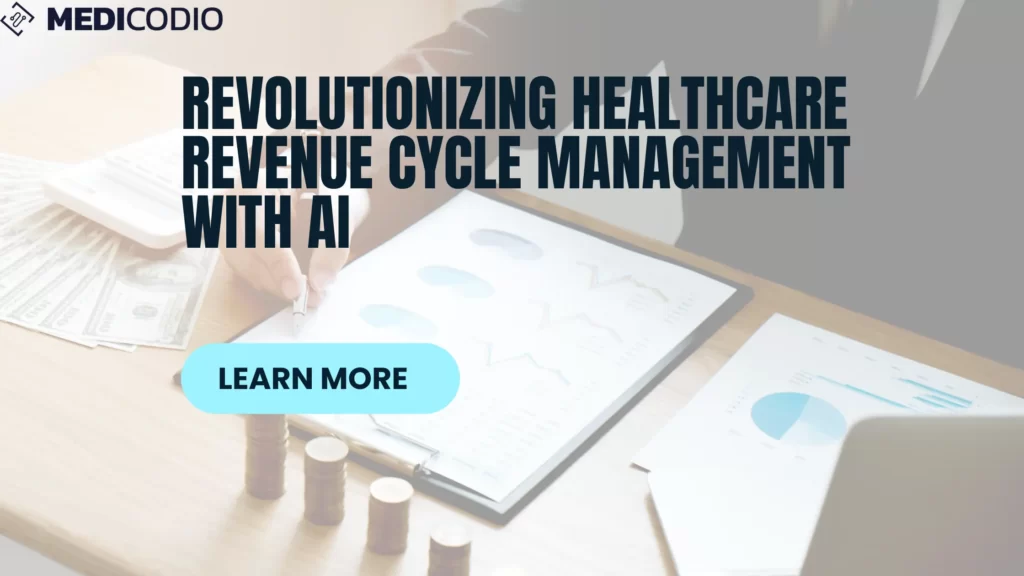The healthcare industry is experiencing a transformative wave with the integration of artificial intelligence (AI) into various operational aspects, significantly impacting revenue cycle management. Revenue cycle management (RCM) in healthcare involves the financial process that healthcare organizations use to manage administrative and clinical functions associated with claims processing, payment, and revenue generation. In recent years, AI has emerged as a game-changer, streamlining and enhancing the efficiency of revenue cycle management for healthcare providers.
The Current Landscape
Healthcare providers are under constant pressure to optimize their revenue cycles, yet they face numerous challenges. According to the Healthcare Financial Management Association (HFMA), up to 90% of providers experience financial losses due to inefficiencies in their revenue cycles. Common issues include claim denials, billing errors, and lengthy reimbursement processes, all of which lead to revenue leakage and increased administrative costs.
Enter AI in Revenue Cycle Management
Artificial intelligence has emerged as a beacon of hope for healthcare providers striving to address these challenges. AI offers a plethora of solutions, empowering healthcare organizations to streamline and enhance revenue cycle management in various ways:
Data Analytics and Predictive Modeling
AI-enabled data analytics and predictive modeling help in predicting potential revenue leakages. These systems analyze vast amounts of data, identifying patterns and discrepancies that might lead to claim denials or billing errors. Predictive analytics algorithms can forecast the likelihood of claim denials or identify areas where coding errors commonly occur, allowing providers to proactively address these issues before they impact the revenue cycle.
According to a report by McKinsey, AI-powered predictive analytics can reduce claim denials by up to 30%, significantly boosting revenue.
Automated Coding and Billing
AI-based tools streamline the coding and billing processes, significantly reducing manual errors and accelerating the claims submission process. Natural Language Processing (NLP) algorithms can accurately interpret clinical documentation and automatically generate appropriate medical codes, minimizing the risk of errors and improving billing accuracy.
Recent studies indicate that AI-driven automated coding systems can reduce coding errors by over 50%, resulting in faster reimbursement and increased revenue for healthcare providers.
Enhanced Patient Engagement and Experience
AI technologies also play a pivotal role in enhancing patient engagement, which indirectly influences revenue cycle management. Chatbots and AI-powered virtual assistants can streamline appointment scheduling, provide billing information, and answer common patient queries, improving overall patient satisfaction and reducing the chances of billing disputes.
Research by Accenture suggests that 70% of healthcare consumers are willing to use AI-enabled healthcare services, potentially leading to better patient retention and increased revenue for providers.
Optimized Claims Processing
AI streamlines the claims processing system by efficiently identifying errors or missing information in claims before submission. Machine learning algorithms flag potential issues in real-time, ensuring that claims are accurate and complete before they reach payers. This not only reduces claim denials but also accelerates reimbursement cycles.
An industry report by CAQH estimates that AI-driven claims processing can save healthcare providers up to $11 billion annually in administrative costs.
Regulatory Compliance and Fraud Detection
AI tools can help healthcare organizations stay compliant with ever-evolving regulations. These systems can detect anomalies and patterns that might indicate fraudulent activities, ensuring adherence to compliance standards and reducing the risks associated with fraudulent claims.
According to a study by the Journal of AHIMA, AI-powered fraud detection systems have led to a 30% reduction in fraudulent claims, safeguarding revenues and minimizing legal risks for healthcare providers.
Conclusion
In conclusion, the integration of AI into healthcare revenue cycle management is proving to be a transformative force, addressing long-standing challenges and significantly improving the financial health of healthcare organizations. From predictive analytics to automated billing and enhanced patient engagement, AI is revolutionizing how revenue cycles are managed, leading to increased efficiency, reduced costs, and improved revenue generation.
As the healthcare industry continues to evolve, embracing AI in revenue cycle management will be crucial for providers aiming to stay competitive and financially robust in a rapidly changing landscape.
Remember, the future of healthcare revenue cycle management lies in the seamless integration of AI technologies, ensuring smoother operations, higher revenue generation, and ultimately, better patient care.
If you are looking for a financially healthy future, give CODIO a spin. Schedule a Demo to learn more.





